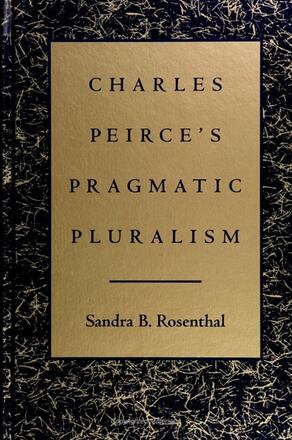
Charles Peirce's Pragmatic Pluralism
Alternative formats available from:
Description
This work runs counter to the traditional interpretations of Peirce's philosophy by eliciting an inherent strand of pragmatic pluralism that is embedded in the very core of his thought and that weaves his various doctrines into a systematic pattern of pluralism.
Rosenthal gives a new design to the seeming bedrock of Peirce's position: convergence toward the final ultimate opinion of the community of interpreters in the idealized long run. Focusing frequently on passages from Peirce's writings which have been virtually ignored in the more traditional interpretations of his work, this book shows the way in which Peirce's position, far from lying in opposition to the Kuhnian interpretation of science, provides strong and much needed metaphysical and epistemic underpinnings for it in a way which avoids the pitfalls of false alternatives offered by the philosophical tradition. The book examines in depth the various features of Peirce's position that enter into these underpinnings. Among the topics explored are meaning, truth, perception, world, sign relations, realism, categorical inquiry, phenomenology, temporality, and speculative metaphysics.
Sandra B. Rosenthal is Professor of Philosophy at Loyola University. She is co-author, with Patrick L. Bourgeois, of Mead and Merleau-Ponty, also published by SUNY Press, and author of Speculative Pragmatism.
Reviews
"I am impressed with the author's adept way of interweaving the diverse threads of Peirce's thought into a coherent thesis: underlying Peirce's idealism, realism, anti-nominalism, phenomenology, metaphysical categories is a commitment to pluralism. This is both an interesting and original way to address Peirce's philosophy. " — Carl R. Hausman, Penn State
"I like the force and subtlety with which Rosenthal makes her case for Peirce's pragmatic pluralism; the care and sophistication with which she interprets relevant texts (especially those that seem to point in the direction away from her main thesis); and the light which she sheds on some of the most important but difficult parts of Peirce's philosophy.
"Rosenthal's take on Peirce will force those of us who do not see in Peirce such a thoroughgoing or radical pluralist to rethink the issue. The debate likely to be sparked by her interpretation will sharpen our understanding of Peirce both as a philosopher of science and a metaphysician. Professor Rosenthal illuminates crucial issues, often in a startling manner, one truly suggestive of previously unexplained possibilities. " — Vincent Colapietro, Fordham University